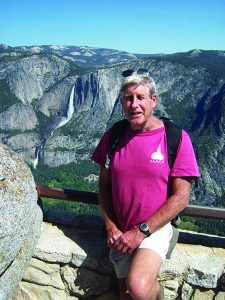Most men seem to have little knowledge about prostate cancer, even though it is one of the most common cancers found in men in the U.S. Until diagnosed, most of us tend to ignore the issue entirely. I was no different some six years ago — before I was diagnosed with aggressive prostate cancer. I was in denial, even though I was symptomatic. I convinced myself that I knew better and self-diagnosed what I thought was simply an enlarged prostate. Little did I know I was about to embark upon an adventure and steepen my learning curve on the topic.
For the past five years or so, I have been engaged as an advocate, working with men across the nation — particularly in Maui County — helping them navigate through the ever-changing complexities of treatment modality, imaging options and interventions available in the world of prostate cancer. Fortunately, most men will be diagnosed with fairly low-grade disease that in many cases needs only active surveillance. But a significant number of men will fall into the category of those needing treatment for their disease.
I work through the peer-driven Answer Cancer Foundation (AnCan.org) as well as the Pacific Cancer Foundation on Maui to provide support, navigation and advocacy for men who are dealing with any cancer diagnosis, not just prostate cancer. I moderate free, live, online/telephone, bimonthly support groups for men. I have men calling in from O‘ahu and Neighbor Islands. We put our heads and hearts together to provide support and information for each other.
When I was first diagnosed, I was desperate for answers. I found my way to a support group predominantly comprised of women breast cancer survivors. I was the token male and welcomed, but I got no answers. I quickly realized that as men, we are not looking for emotional support and tissues as much as reliable information from peers who are going through a similar experience.
The world of cancer diagnostics and treatment is a rapidly developing dynamic. I have had scans, genetic tests and treatments that were not yet FDA approved or even conceived of when I was first diagnosed. Staying up to date with the latest technology is imperative. Awareness of treatment options can be life-changing.
I urge all men to connect with a support network. Remember, I am here to help you, too — including helping women who are trying to support their man through a tough time in this life.
ANCAN: MEN’S TALK STORY SUPPORT GROUP
Sponsored by Pacific Cancer Foundation (501(c) 3 nonprofit)
PCF Office: 808-242-7661 | Peter Kafka: 808-298-1655
www.pacificcancerfoundation.org/mens-talk-story
www.ancan.org/maui-mens-group/



Leave a Reply